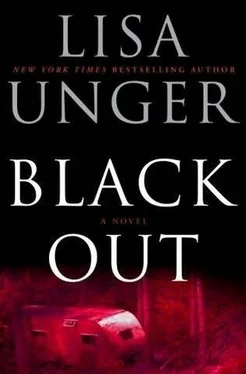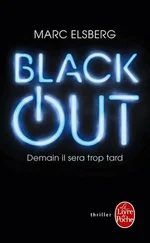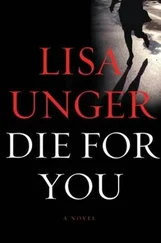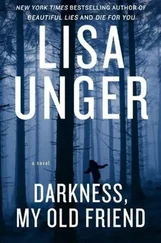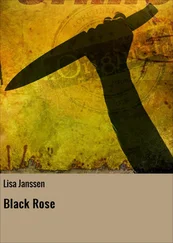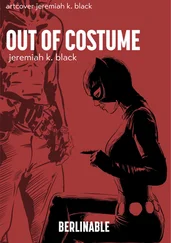I go through the motions even though my head is reeling from the events of the night before. I put on a big show for Victory, who races toward me when she sees me waiting for her after school. I squeeze her hard and hold on until she squirms and giggles, and says, “Mommy, you’re squishing me!”
In the car she regales me with stories of princesses and castles, giant cartoon characters, endless junk food, and the big bed in her room at Drew and Vivian’s suite. As I listen, I push back images of Simon Briggs, the dark shadow on the beach, my slain psychiatrist. I want to be present for my daughter’s joy. But I can’t. I’m sure she senses it, as her enthusiasm wanes and her tale peters out.
Probably about the same time I was driving Victory back home, Detective Harrison was making connections Gray didn’t think he’d be able to make. There was something to link Annie Fowler and Ophelia March. It should have been obvious, since it was Gray. The articles I searched online to ease myself out of the black patches were among the same ones that Detective Harrison found when he researched Gray Powers. Of course there was the slew of articles about Gray’s military career as a decorated Navy SEAL, the articles about Powers and Powers and the rise of privatized military companies. After scrolling though page after page, Detective Harrison found an old item, an article from the Albuquerque Journal. The headline read: INVESTIGATOR HUNTS, KILLS CRIME-SPREE KILLER MARLOWE GEARY: Ophelia March, believed to be Geary’s captive or his accomplice, also killed. He might otherwise have glanced over the article except for the picture of Ophelia, which he quickly recognized. It was all there for him to see, my ugly past.
Maybe it’s the disappearance (death? murder?) of my (imaginary?) shrink or the fact that I can feel Harrison’s breath on my neck. Or maybe it’s as my doctor believed, that I’m stronger than I’ve ever been, that I’m ready to face the things I have packed away. Whatever the reason, the flashes of memory I’ve had, the dreamlike images, begin to coalesce. The blanks start to fill in.
It’s not as dramatic as I believed it would be, this return of my past. I envisioned being bowled over by it, taking to my bed, feeling helpless to do anything as the memories trampled me like runaway horses. But it is more like watching the rerun of a black-and-white horror film I saw as a child. The images are familiar, but too grainy and drained of power to be truly frightening.
After I put Victory to bed her first night back home, I start to remember. I tuck her beneath her sky blue sheets and sit with her as she drifts off, watching the delicate rise and fall of her chest. As I get up quietly and slip from her room, she says sleepily, “I want my baby.” I find Claude on the floor and put him beside her, but she is already sound asleep again. As I leave the room, I hear Janet Parker’s voice and there’s a terrible ringing in my ears. Once I’m back in my bedroom, I’m swept away, traveling back to a place I haven’t visited in a lifetime.
I watched Marlowe leave the house that night. He had his headphones on, and he walked out the front door and disappeared into the trees. As usual, Frank was gone and my mother was in a stupor in front of the television. Don’t you wonder where Frank goes at night? Marlowe had asked. He’s hunting. I easily slipped out after him. In the dark, I saw his form move quickly through the woods, and I followed. I could smell the acrid scent of his cigarette smoke hanging in the air.
He walked for so long and he was so fast that I didn’t think I’d be able to keep up. By the time he came to a stop, I was breathless and sweating. My legs had been lashed by the overgrowth. The mosquitoes were in a feeding frenzy at my ankles and my neck.
He came to a creek that ran through the property and waded across. Through the trees I could see a trailer, a rusted-out old thing up on concrete blocks, not much smaller than the one I’d lived in with my mother. He opened the door and went inside. I saw a light come on. I stood in the darkness, waiting, not sure whether to follow or to go back home. As I was about to walk over to the trailer, he emerged again. He came back to the creek and squatted there, looked into the water as though gazing at his own reflection. I approached him.
At first I thought he was laughing, laughing at me for following him. It was only as I drew closer that I realized he was crying. His whole body was shivering with it. I didn’t know what to do. I stood and watched him for I don’t know how long, listening to the sound of his weeping, an owl calling up above us, tree frogs singing all around.
“Marlowe,” I said finally, softly.
He didn’t jump at the sound of my voice, and I assumed he couldn’t hear me, that he had the Cure or the Smiths blasting in his ears.
“We have to get out of here,” he said, his voice a choked whisper. “It’s started again. You saw. I know you did.”
I had the strong urge to turn and run from him, even though I’d followed him out there. Or was I just a fish on a line, he the fisherman reeling me in-too foolish, too naïve to feel the hook in my cheek?
“You helped him,” I said. His back was still to me. “Who was it?”
He stood and spun around then, came and grabbed me by the shoulders. “Does it fucking matter who it was?” he hissed. “Do you understand now?”
I saw him then, saw what he was. This is why I can’t forgive Ophelia. She knew.
“I’m ready,” I told him. And his face changed again. It was as white as the thin slice of moon.
“Are you sure?”
“Yes.” And I was.
He brought me into the trailer. There was a kitchen and a small bedroom. A bathroom that didn’t work, of course. No electricity or running water. The lights were all battery-operated. I recognized the bedding, the pots and dishes from our old trailer. The table was piled high with Marlowe’s books and notebooks.
“What is this place?”
“I found it walking one night when we first came. Abandoned, gone to shit. I’ve been fixing it up, staying out here sometimes. You could live out here, you know. If you have provisions, you could live out here forever. He doesn’t know about it. No one does.”
He took me by the hand and led me to the bed, turning out the little plastic lights as we went. In the darkness we lay close. I couldn’t see his face anymore. I was grateful that the darkness was so total. I could only hear the sound of his voice, feel the warmth of his body next to mine. We talked about what we would do. It didn’t seem real. It was all a dream.
When I come back to myself sitting on the edge of my bed, my daughter sleeping down the hall, an hour has passed. I feel shaken and weak. I’m not sure I want to remember the things I have forgotten. But I know that the memories will come now, unbidden, the dead rising.
In music a fugue is a movement in which different voices combine to state or develop a single theme. These voices mingle and weave together, each tone complementing the other, creating a multilayered but unified part of the composition. In psychology the term refers to a dissociative state characterized by a sudden departure from one’s life, bouts of amnesia or confusion regarding one’s identity, significant distress, generally the result of a major emotional or physical trauma. I have no musical ability whatsoever, but I’m painfully familiar with fugue. Or so I’m told.
Yet this is not a fugue, this most recent flight from my life. For the first time maybe, I am sure of who I am and what I must do. This has been a purposeful escape to protect my daughter from mistakes that I have made, to protect her from the woman I have been. If I can’t do that, then she’s better off without me.
Читать дальше
